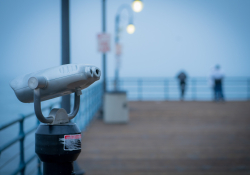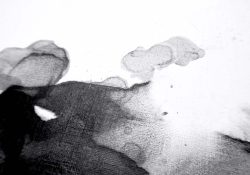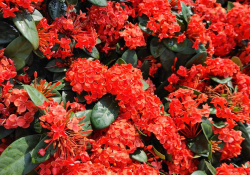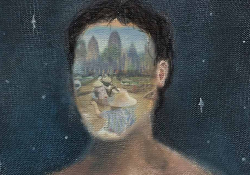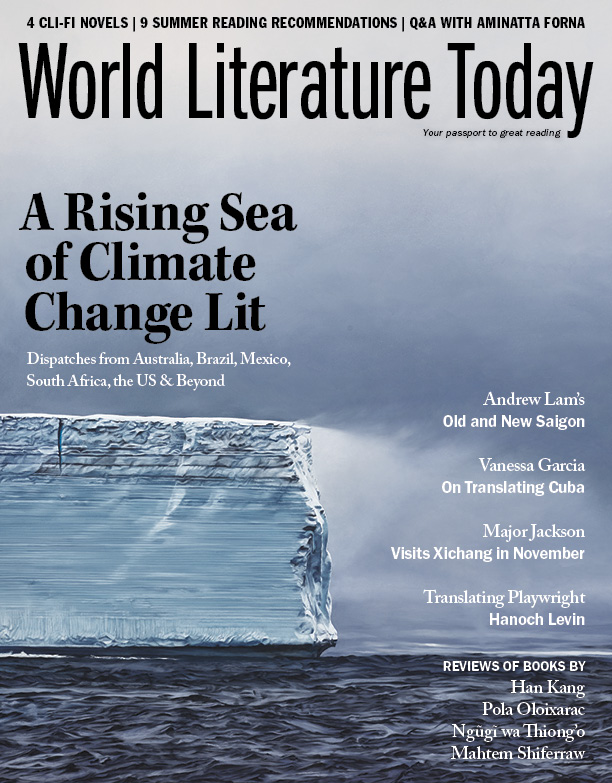Three Poems from the Philippines
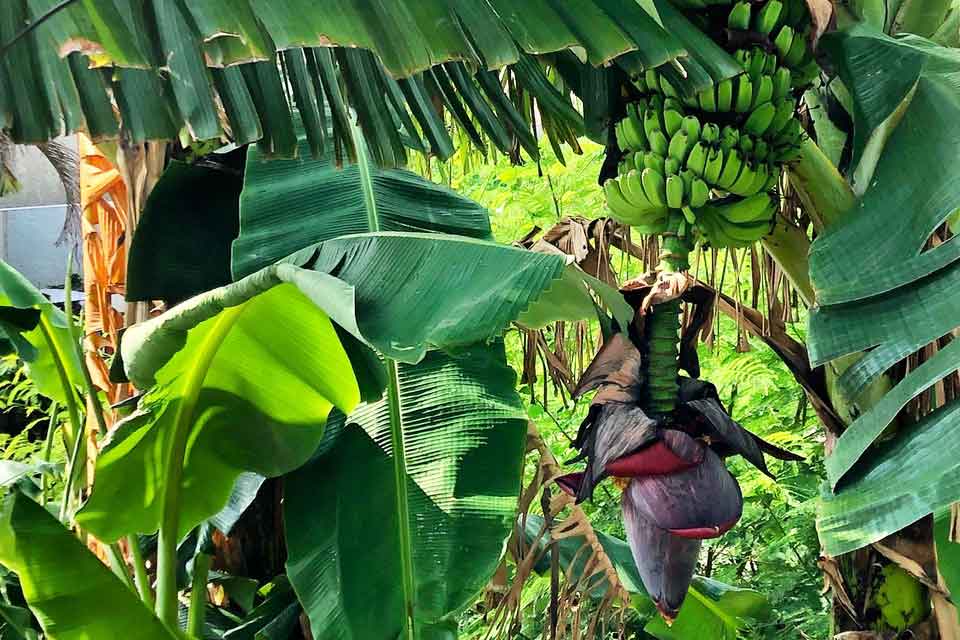
As she pleases
after Tropical Storm Ondoy, 2009
If only words dilute sediments at the bottom of my gut; if only a tongue can let this pain hydroplane into a song.
If only I did not get up from the soft eggshell mattress of my old bed; if only I played the lazy student card and stayed behind.
If only they warned us; if only I/they listened.
If only those raindrops were not as fat as freshly fed eels; if only I camped out in school and waited for hot bread.
If only I did not swim in dark floodwaters; if only I did not stare at the flashing blue traffic lights that screamed end of the world.
If only they did not shout, “repent, repent, repent!” while navigating atop broken concrete barriers; if only I/we did not shout back, “yes!”
If only I did not open my mouth; if only I did not close my mouth and stopped breathing instead.
If only I came home earlier; if only I came home later.
If only no one died; if only everyone died.
We/you were never the same after the flood; somehow you came out of that dirty dark floodwater with your tummy swelling with survival and your heart still paddling its tiny arms to safety.
Maybe you like staying there; maybe you like that dank bile.
Maybe there’s never been a way out of the flood; maybe you do not see a way out of the flood.
Maybe this is where you want to be; if this is where I want to stay.
As we please
for Benjamin, 2016
The banana tree swayed as you fell from it; nothing new there – you fell from aging mango trees before. Once, you even fell into open sewage in front of a heritage church, then ran into incoming traffic sweating away whatever demon perched on your shoulder. But that day, when you fell, it was a forty degree Celsius afternoon. Even the maya birds stopped singing; the stray dogs curled up under stagnant cars on the street, lazy. You insisted on picking the banana’s heart – a penultimate moment before the large red flower blossoms – so you can serve banana heart salad that night. With your bolo, you climbed the tree and in that climb, the world stopped for you and for me. You fell with your eyes open, dryly staring up at the equator’s sun – this sun we’ve known all our lives – and accepting its betrayal. There will be no banana heart salad tonight, nor will there ever be another forty degree afternoon. I thought about that image of you during that awful winter. As I walked unplowed sidewalks, I could see a banana tree in the near distance and your triumphant grin as you cut away the heart. You drop it on a pile of snow and I pick it up. Dinner’s ready, you say, set the table. Oh, but dad, where is home in all this cold?
As he pleases
Winter, 2019
from where I am,
El Niño is a god.
he wakes children
up by wiping their
foreheads wet
with sticky sweat
when they go out
to play before lunch,
he makes sure they
run back home
before their skins
sizzle, blister and
peel
siesta is sleep spent
swimming in beads
of sweat and jerking
awake from the
burn of the lazy 3
pm sun
if in school, they’d
be folding their
Catholic school
sleeves or ripping
open the first
three buttons of
their brown-stained
pleated white shirts
sometimes, Anna
whispers, “It’s too
hot,” and Bugoy
answers, “It’s
El Niño.”
This man moulds their
worlds into pliable
horizons; where
the sun at its peak
bends everything
that’s 20 meters
away in sharp
golden zigzags.
yet, at night,
El Niño is the diablo.
armed with raincoats
and umbrellas printed
with a smiling red
bumblebee, they all
rush home, running
in the Crocs they
keep at the insert
of their trolley bags –
lest he sees them;
lest he strikes.
he pours into cities,
provinces, farmlands –
angry, angry, angry
and bringing with him
water that overflows –
water they needed
this morning when
the river was drying
up from the mud –
water they needed
to clean the pigs with
or to wash the smelly
dog’s fur –
he brings so much more,
like Santa Claus, but with
lightning bolts that jolt
30-story condominiums
and thunder that forces
children to settle under
covers earlier than bed
time –
El Niño tilts his burlap
sack and there he releases
all his pent-up rage onto
the roofs until the land
can take no more –
until the rivers swell and
the ocean rebels –
until children close
their eyes and wish
for the wet to go away.
While in another part
of the world, across the
ocean that birthed this
angry man, a blonde
toddler looks up at his
father while he swallows
his beer:
“What’s El Niño, dad?”
A heartbeat blooms
in the silence that follows;
shreds of snow pelt
their cold cheeks.
They say winter
is mild this year,
on the West Coast,
because of El Niño.
This El Niño feels good,
the father says, and the
toddler smiles at him.
“It’s El Niño,” he says,
with another swig
of dry beer. Belches.
It snows, barely.
Kelowna, British Columbia



